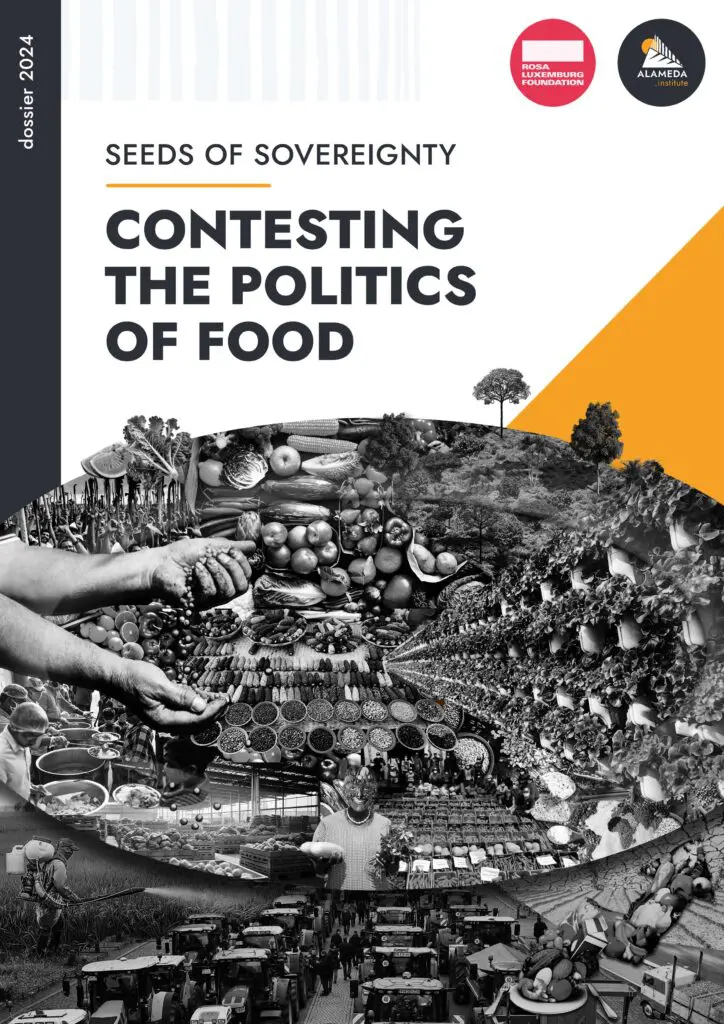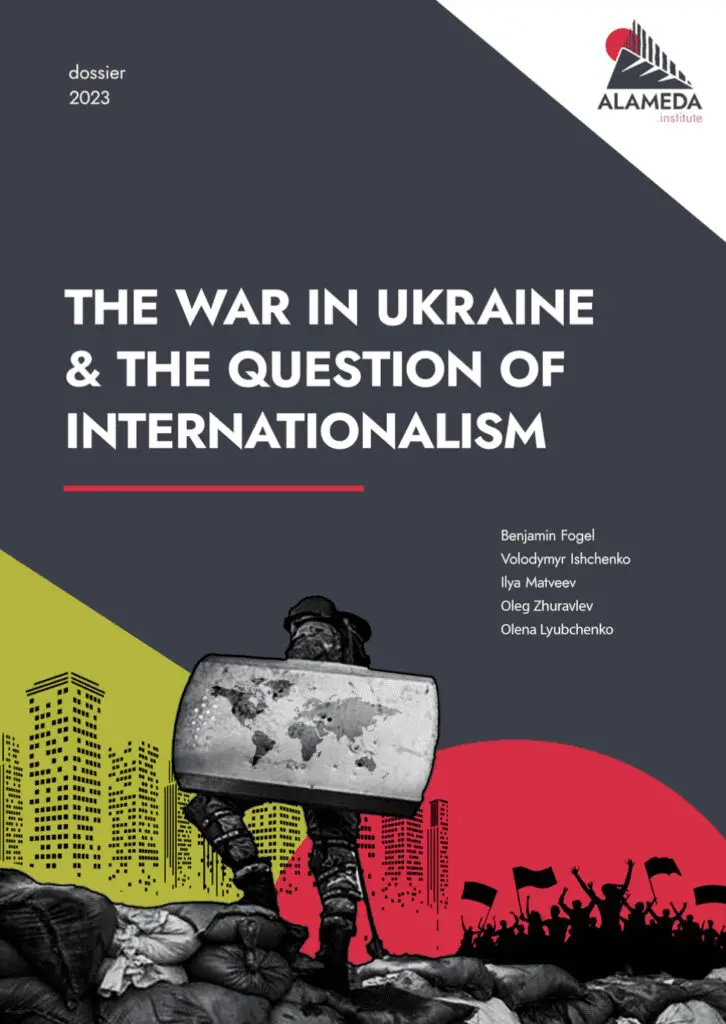Rumo a uma nova estratégia internacionalista para a soberania alimentar
Todos nós precisamos comer para viver, mas, curiosamente, a questão sobre como garantir que um suprimento constante de alimentos de qualidade e a preços acessíveis chegue às nossas mesas é frequentemente removida dos debates estratégicos. A alimentação parece secundária em relação às principais questões políticas de nosso tempo, ou sua discussão fica restrita a públicos específicos. Atualmente, o colapso ecológico, a guerra nuclear e a desintegração econômica mundial aparecem como ameaças no horizonte, mesmo quando seus efeitos concretos são sentidos em todo o mundo. Este dossiê, produto da colaboração entre a Fundação Rosa Luxemburg e a Alameda, defende que a produção e a distribuição de alimentos são, de fato, de importância estratégica para lidar com a policrise que molda o mundo em que vivemos.
Durante a pandemia da COVID-19, os problemas com os sistemas agrícolas e de alimentos globais ficaram cada vez mais evidentes, pois as cadeias de suprimentos globais foram interrompidas e os impactos foram sentidos nos sistemas agrícolas de produção existentes.
Em 2022, a crise foi novamente acelerada pela invasão russa na Ucrânia, que interrompeu a produção de alimentos e as cadeias de suprimentos de insumos agrícolas, como fertilizantes químicos. Mais recentemente, os eventos em Gaza, no Sudão e em outros lugares destacaram ainda mais a conexão entre a guerra e a crise alimentar, pois vemos a fome ser usada como uma arma de guerra, desencadeando horrores indescritíveis contra populações inteiras.
Após a pandemia da COVID-19 e a invasão da Ucrânia, a inflação e o custo de vida trouxeram a questão da crise alimentar de volta à agenda política. A desnutrição infantil aumentou, pois milhões de pessoas, mesmo nos países mais ricos, tiveram que escolher entre pagar as contas e comprar alimentos. Mas foram as populações mais pobres e marginalizadas do planeta que foram mais afetadas. E são elas que, na maioria das vezes, sofrem os efeitos mais devastadores das mudanças climáticas.
Para abordar isso como um problema estratégico, o dossiê se concentra em questões interligadas de como se organizar, como apoiar a organização e como construir alternativas que transformem os sistemas alimentares na prática. No centro do dossiê está o argumento de que isso só pode ser feito mudando nosso pensamento sobre a crise alimentar do conceito de segurança alimentar, baseado na questão da disponibilidade de alimentos, que de fato normaliza a crise, para o conceito de soberania alimentar.
De acordo com o movimento internacional Via Campesina, a soberania alimentar pode ser definida “como o direito dos povos a alimentos saudáveis e culturalmente adequados, produzidos por meio de métodos ecologicamente corretos e sustentáveis, e seu direito de definir seus próprios sistemas de alimentação e agricultura”.
“Ela coloca as aspirações e as necessidades daqueles que produzem, distribuem e consomem alimentos no centro dos sistemas e das políticas alimentares, em vez das demandas dos mercados e das corporações”. Em essência, a soberania alimentar move o debate sobre alimentos de questões de acesso para questões de poder e produção que vão além do alimento em si.
Esse dossiê reúne os principais especialistas e pensadores sobre a crise alimentar, como Jennifer Clapp e Raj Patel, em diálogo com profissionais e ativistas como Million Belay, da Alliance for Food Sovereignty in Africa (AFSA), que está diretamente envolvido na luta para criar sistemas justos e sustentáveis de produção e distribuição de alimentos.
O dossiê apresenta a crise alimentar como sendo de âmbito global. Conforme argumentado por Sabrina Fernandes, isso exige uma renovação do internacionalismo, conectando os esforços locais para organizar a soberania alimentar (por exemplo, sindicatos de trabalhadores rurais na África do Sul) a questões de estratégia global.
As contribuições de Schluwa Sama e Ansar Jasim sobre o papel do império no Iraque e de Ranja Sengupta sobre o comércio internacional abordam diretamente essa última questão.
Assim, este dossiê adota uma abordagem ampla que trata da interconexão das crises atuais. Esperamos que ele possa contribuir para um diálogo estratégico sustentado sobre alimentação que apoie a organização para futuros alternativos.

ARTIGOS RELACIONADOS
XII / Em solidariedade à Ucrânia: Reflexões sobre guerra e morte
XI / Soberania e a policrise
IX / Humanitarismo após a unipolaridade
VII / Teses sobre a situação na Ucrânia
IV / Guerra contrária (revolucionária) contra a sociedade
II / O conflito de classes por trás da guerra da Rússia
Jan Urhahn e Benjamin Fogel
* Benjamin Fogel is Head of Publishing at Alameda.



